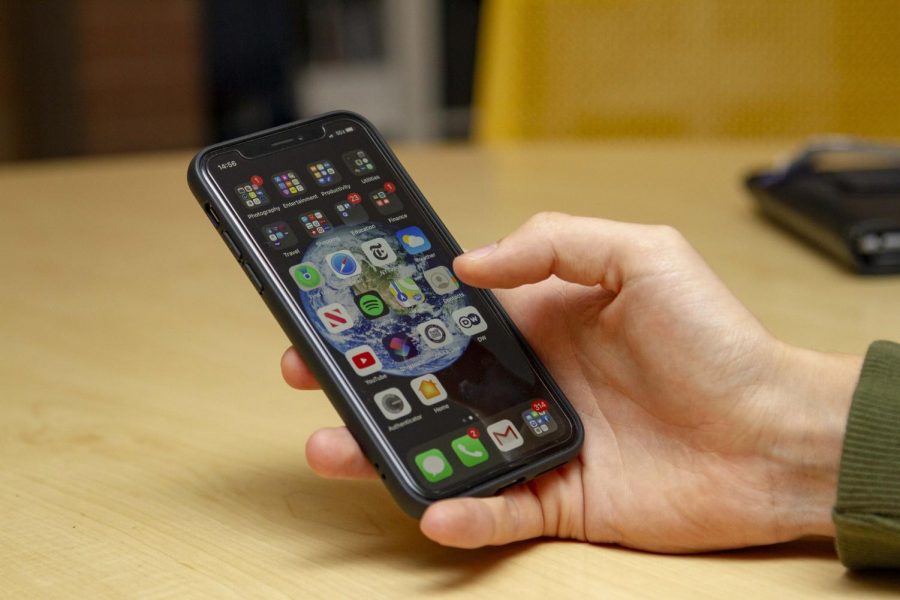The Phone Policy Is for Our Benefit, Not Our Boredom
Some students are struggling with the new cellphone policy in class.
October 2, 2019
On Tuesday, Sept. 3, Mr. Brian Devine, Vice Principal of Student Life, sent out a Schoology message that laid out the basics of a new school-wide policy that would limit the use of cellphones to the cafeteria, courtyards, and main hallway.
According to Mr. Devine, the purpose of this policy is “to prioritize student learning, health, and human connection.” This announcement was met with a large amount of controversy from the student body, with many feeling that the policy is unfair in concept or ineffective in execution.
However, research suggests that the idea of limiting access to cellphones can have beneficial effects on everything from attention span to social inclination. The intentions of the administration’s actions regarding the new cellphone policy are admirable. Initially, I was skeptical, but now I think that more students should support the school’s initiative.
Multiple studies from Oxford, Harvard, and other high-level academic institutions have shown the detrimental effects that social media and smartphone use has on the human brain, especially early on when it is still developing.
Artificial light messes with our sleep patterns, and the addictive nature of games and social media mean that we are more dependent on our devices. According to a survey conducted between 2016-2018, these are both negative effects of cellphones that teenagers have admitted to experiencing and want to escape.
The hard truth is that cellphones are not our friends. Social media and smartphones have been built to be profitable and addictive.
The yearly iPhone releases have contributed to Apple’s status as a company with a value around one trillion dollars, and despite their multiple cases of misuse of user data, the number of people who utilize the services of Instagram and its parent company, Facebook, number at more than 2.5 billion. This isn’t an accident. Nor is it subtle. 71% of teens are aware that companies design apps to be ensnaring.
The pros of a system that discourages the use of personal devices in certain areas outweigh the cons. I have already observed fewer people using their cellphones in academic hallways and in classrooms.
As The Falconer previously reported, the intent of this policy is not to be a show of strength from La Salle administration, but a way to bring students together in the disconnected world in which we now live. This encourages us to practice the year’s theme of “dialogue”.
Our cellphones are tools of information, communication, and entertainment, but we should not solely rely on them for any of those things. Face-to-face communication makes for empathetic and well-developed relationships. Technology should enhance our real-world experiences, not replace them. This policy is a step in the right direction, and brings us closer to unplugging from our cellphone addictions.





